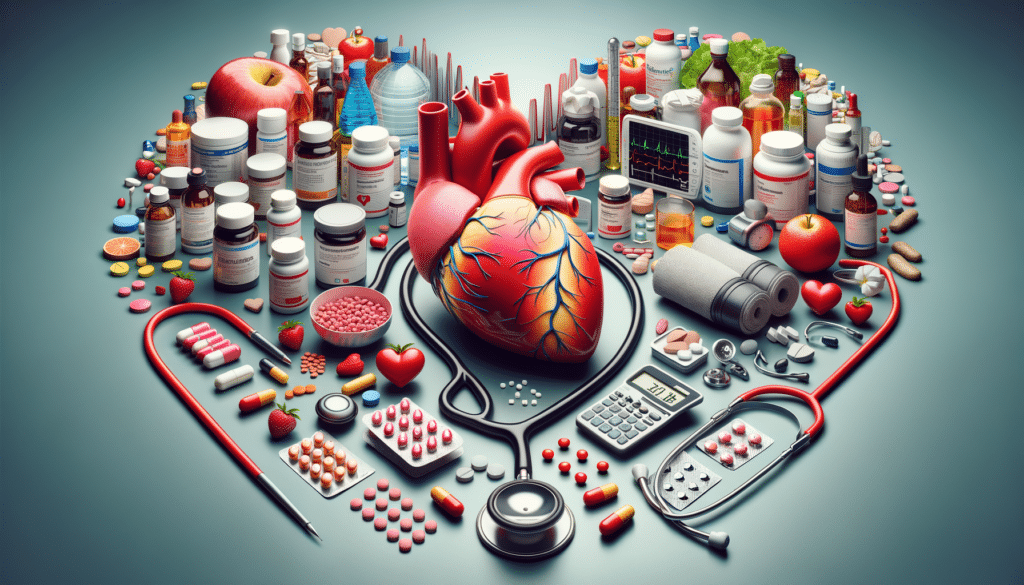Understanding Heart Disease and Its Impact
Heart disease remains a leading cause of mortality worldwide, affecting millions of individuals each year. It encompasses a range of conditions, including coronary artery disease, heart rhythm issues, and heart defects, among others. The impact of heart disease is profound, not only on the individuals affected but also on their families and healthcare systems. Understanding the gravity of heart disease is the first step toward exploring treatment options that can significantly improve quality of life.
Heart disease often stems from a combination of genetic, lifestyle, and environmental factors. Risk factors include high blood pressure, high cholesterol, smoking, obesity, and a sedentary lifestyle. With the increasing prevalence of these risk factors, it is crucial to address heart disease with effective treatments. Early intervention and management can prevent complications and improve outcomes.
While heart disease can be daunting, advancements in medical science have led to a variety of treatment options that offer hope and healing. From lifestyle changes to surgical interventions, there are numerous paths to explore for those diagnosed with heart disease.
Lifestyle Modifications: The Foundation of Heart Health
One of the primary approaches to managing heart disease is through lifestyle modifications. These changes form the foundation of heart health and can often prevent the progression of the disease. Key lifestyle modifications include:
- Dietary Adjustments: Embracing a heart-healthy diet rich in fruits, vegetables, whole grains, and lean proteins while reducing saturated fats, sodium, and sugars can significantly improve heart health.
- Regular Exercise: Engaging in regular physical activity, such as walking, swimming, or cycling, can help reduce risk factors like high blood pressure and cholesterol levels.
- Smoking Cessation: Quitting smoking is crucial, as it is a major risk factor for heart disease. Support groups and cessation programs can aid in this process.
- Stress Management: Techniques such as meditation, yoga, and deep breathing exercises can help manage stress, which is linked to heart disease.
These lifestyle changes are often recommended alongside other treatments and can be highly effective in managing heart disease symptoms and improving overall heart health.
Medications: Targeted Treatments for Heart Disease
Medications play a critical role in the management of heart disease, offering targeted treatments that address specific symptoms and underlying causes. Some common medications used in heart disease treatment include:
- Statins: These drugs help lower cholesterol levels, reducing the risk of heart attacks and strokes.
- Beta-blockers: These medications reduce blood pressure and heart rate, helping to manage hypertension and heart rhythm disorders.
- ACE Inhibitors: These drugs relax blood vessels, lowering blood pressure and improving blood flow.
- Antiplatelet Agents: Medications like aspirin prevent blood clots, reducing the risk of heart attacks.
While medications are highly effective, they often work best when combined with lifestyle changes. It is important for patients to work closely with their healthcare providers to determine the most appropriate medication regimen based on their specific condition and needs.
Surgical Interventions: Advanced Solutions for Severe Cases
In cases where lifestyle changes and medications are insufficient, surgical interventions may be necessary to treat heart disease. These procedures offer advanced solutions for severe cases and can include:
- Angioplasty and Stenting: This procedure involves widening blocked or narrowed coronary arteries, often with the placement of a stent to keep the artery open.
- Coronary Artery Bypass Grafting (CABG): In this surgery, blood vessels from other parts of the body are used to bypass blocked coronary arteries, improving blood flow to the heart.
- Heart Valve Surgery: Repairing or replacing damaged heart valves can improve heart function and alleviate symptoms.
- Pacemakers and Implantable Cardioverter-Defibrillators (ICDs): These devices help regulate heart rhythms and prevent sudden cardiac arrest.
Surgical interventions are typically considered when other treatments have not been effective, and the decision to undergo surgery is made based on a comprehensive evaluation by a cardiologist.
Rehabilitation and Ongoing Management
Post-treatment rehabilitation and ongoing management are crucial components of heart disease treatment. Cardiac rehabilitation programs offer structured support to help patients recover and maintain heart health. These programs often include:
- Supervised Exercise: Tailored exercise plans help improve cardiovascular fitness and overall well-being.
- Education and Counseling: Patients receive education on heart-healthy habits and emotional support to cope with the psychological impact of heart disease.
- Monitoring and Follow-up: Regular check-ups with healthcare providers ensure that treatment plans are effective and adjusted as needed.
Ongoing management also involves adherence to prescribed medications, continuous lifestyle modifications, and regular monitoring of heart health indicators. By actively participating in their treatment and rehabilitation, patients can achieve better outcomes and enjoy a higher quality of life.
Conclusion
Heart disease treatment options are diverse and tailored to meet the individual needs of patients. From lifestyle modifications to surgical interventions, each approach offers unique benefits and challenges. By understanding the available options and working closely with healthcare providers, individuals can navigate their journey toward better heart health with confidence and hope.





